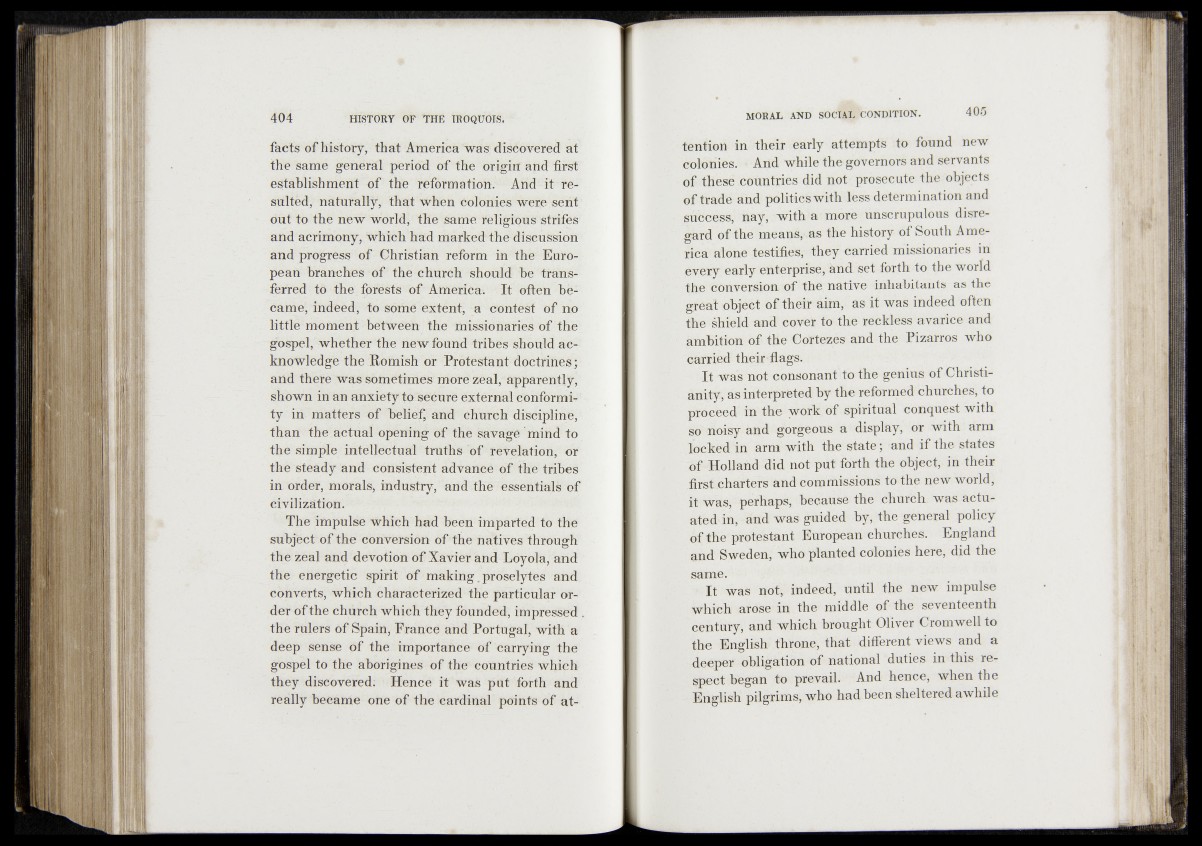
facts of history, that America was disóovered at
the same general period of the origin and first
establishment of the reformation. Arid it resulted,
naturally, that when colonies Were sent
out to the new World, the same religious strifes
and acrimony, which had marked the discussion
and progress of Christian reform in the European
branches óf the church should; be #ans-
ferred to the forests of America-. It often became,
indeed, to some extent, a contest of no
little moment between the missionaries of the
gospel, whether the new found tribes should ac-‘
knowledge the Romish or Protestant doctrines.;
and there was sometindes more zeal, apparently,
shown in an anxiety to secure external conformity
in matters of belief, and church discipline,
than the actual opening of the savager mind to
the simple intellectual truths of revelation, or
the steady and consistent advance of the tribes
in order, morals,, industry, and fKé essentials of
civilization.
The impulse which had been imparted to the
subject of the conversion of the natives through
the zeal and devotion of Xavier and Loyola, and
the energetic spirit of making . proselytes and
converts, which characterized the particular order
of the church which they founded, impressed .
the rulers of Spain, France and Portugal, with a
deep sense of the importance of carrying the
gospel to the aborigines of the countries which
they discovered: Hencé ft was put forth and
rèally became one of the cardinal points of attention
in their early attempts to found new
colonies. And while the governors and servants
of these countries did not prosecute the objects
of trade and politics with less determination and
success, nay, with a more unscrupulous disregard
of the means, .as the history of South America
alone testifies, they carried missionaries in
every early enterprise, and set forth to the world
the conversion of the native inhabitants as the
gréât object of their aim, as it was indeed often
the shield and cover to the reckless avarice and
ambition of the OoFtezes and the- Pizarros who
carried their • flags. ;
It Was not consonant Ho the genius of Christianity,
as interpreted by the reformed churches, to
pfoeeéd in the; work of Spiritual conquest with
So noisy and gorgeous a display, or with arm
locked,in arm with the state; fand if the states
of Holland did not put forth the object, in their
firstnharters ând commissions to the new world,
it was, perhaps, because the ehurch was actuated'in,
and was guided by, the general policy
©f the protestant European churches. : England
and Sweden; who planted colonies here, did the
same. ... | '
It was not, indeed, until the new impulse
which arose in the middle of the seventeenth
century, and which brought Oliver Cromwell to
the English' throne, that different views and a
deeper obligation of national duties in this respect
began to prevail. And hence, when the
English pilgrims, who had been sheltered awhile